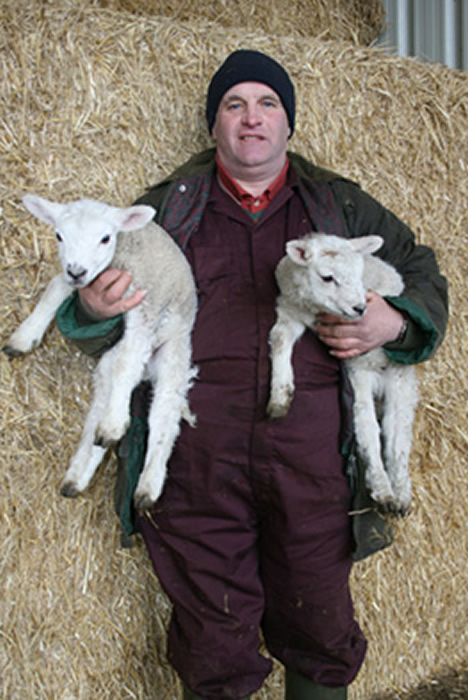
With snow on the ground and the first lambs already born, it may seem like a long time before sheep need to be without their fleeces, but Otley farmer Nick Houseman will once again be hosting sheep shearing days at his farm at Blubberhouses as part of the British Wool Marketing Board’s programme of shearing training days.
Nick Houseman, who runs Prospect Farm at Lindley near Otley and West End Farm, Blubberhouses with his wife Julie and son John, is chairman of the British Wool Marketing Board’s English Northern Region committee and has long been encouraging young shearers to master their skills through the board’s training courses.
Sheep shearing training days have been held for many years at West End Farm - usually just before the Great Yorkshire Show. And this year will be no exception. Several young farmers from North Yorkshire who have attended training days at West End Farm have since established themselves as part of successful shearing gangs on annual trips to New Zealand.
"The sheep industry has gone through some very difficult times but we now seem to be seeing the first signs of renewed confidence as lamb and hogget prices have improved this season. But if the sheep sector is going to go forward it will need skilled staff and being able to shear sheep correctly and efficiently is very much a part of that," says Nick.
He hopes that the boost to sheep producers’ confidence through higher prime lamb and hogget prices will be even further strengthened by an increase in the value of breeding ewes this autumn - and it’s that continuing upbeat trend that he hopes will inspire more young people to come into sheep farming.
"I think that a shortage of skilled labour is going to be one of the big issues that farming faces in the future. If we don’t address the stock management training of the next generation we are going to go downhill fast.
"Food production is high on the government’s agenda but to ensure we can be self-sufficient - as well as benefit from exports - we need staff with a high degree of skills. The training days organised by British Wool Board Training cover a wide range of stock management skills and are a great opportunity for young people looking for a good career in the livestock sector."
Nick Houseman first became involved with the wool board’s regional committee in 1995 and says it has been a "real eye opener" as he began to realise precisely what is involved in every stage of wool marketing.
"We all know that wool prices haven’t been very high in recent years but being involved in the wool board’s regional committee gives you an insight into just how much is involved in wool marketing. When farmers get the chance to see what the wool board actually does they soon realise why we need to support it.
"There’s no question about it. The wool board is providing the best possible service to sheep producers in terms of marketing their wool.
Wool prices across the world have been low but without the wool board, which will take all the wool we produce, we’d all be far worse off."
Nick, who is chairman of Otley Show, says the regional committees are a vital link between producers and the wool board. "I am always ready to listen to producers and to take their queries and concerns to our meetings. We’re very active in trying to improve the practicalities of wool collection for producers and to encourage farmers to appreciate the value of wool compactors. Trying to get producers to reduce costs by making use of collection centres is very important."
Prospect Farm, Lindley near Otley runs to 800ft and covers 475 acres, all in the Less Favoured Area. The Housemans milk 120 Holstein cows with 300 followers alongside 450 breeding ewes. The flock is split into 120 Mules put to a Texel x Beltex tup and 320 Swaledale ewes run with the Bluefaced Leicester.
Around 100 North of England Mule hoggs are also lambed - most are sold as shearlings. All lambs are finished with most sold from May to August. The rest are sold in autumn through into the New Year through auction marts at Otley and Pateley Bridge.
